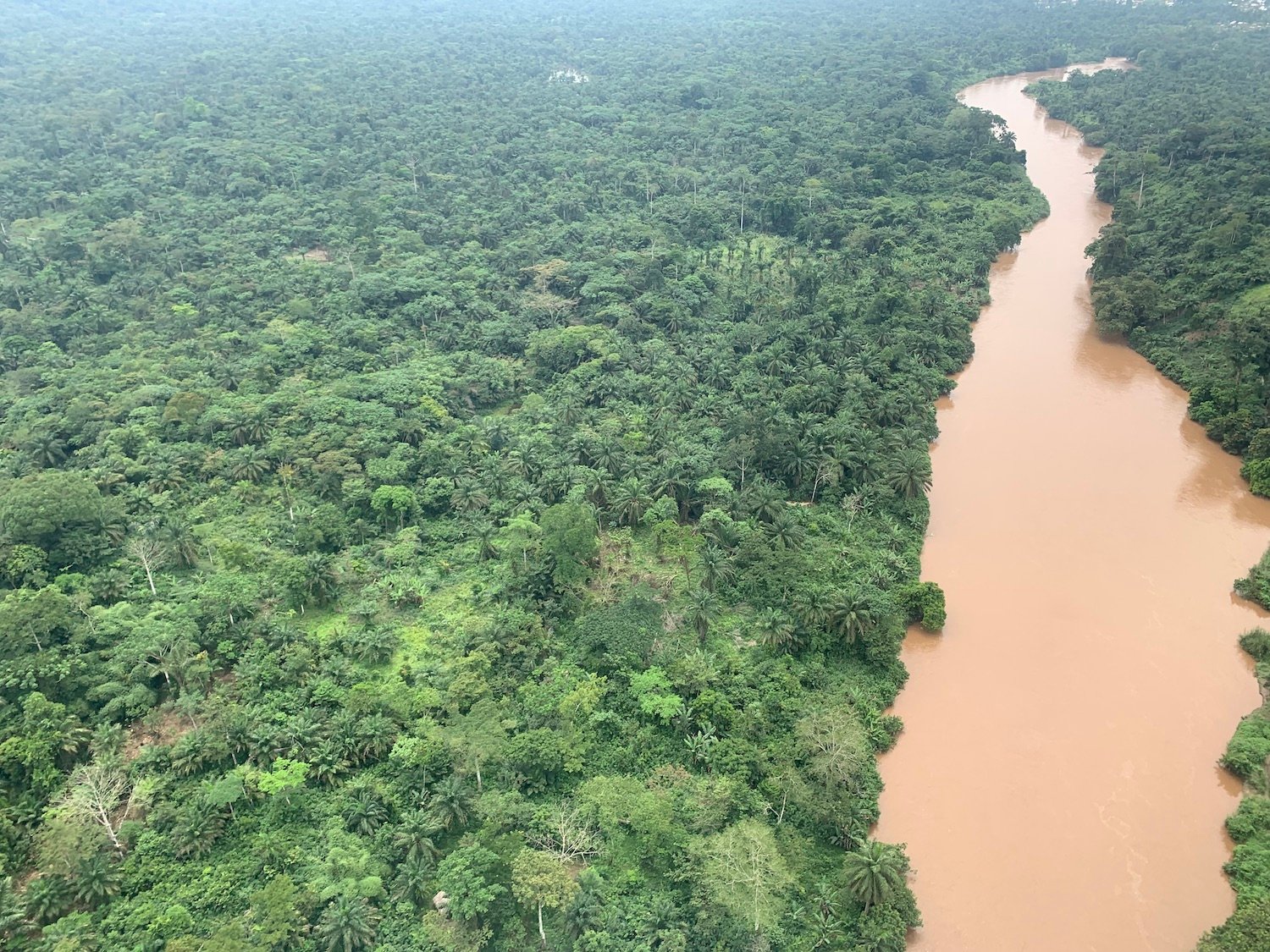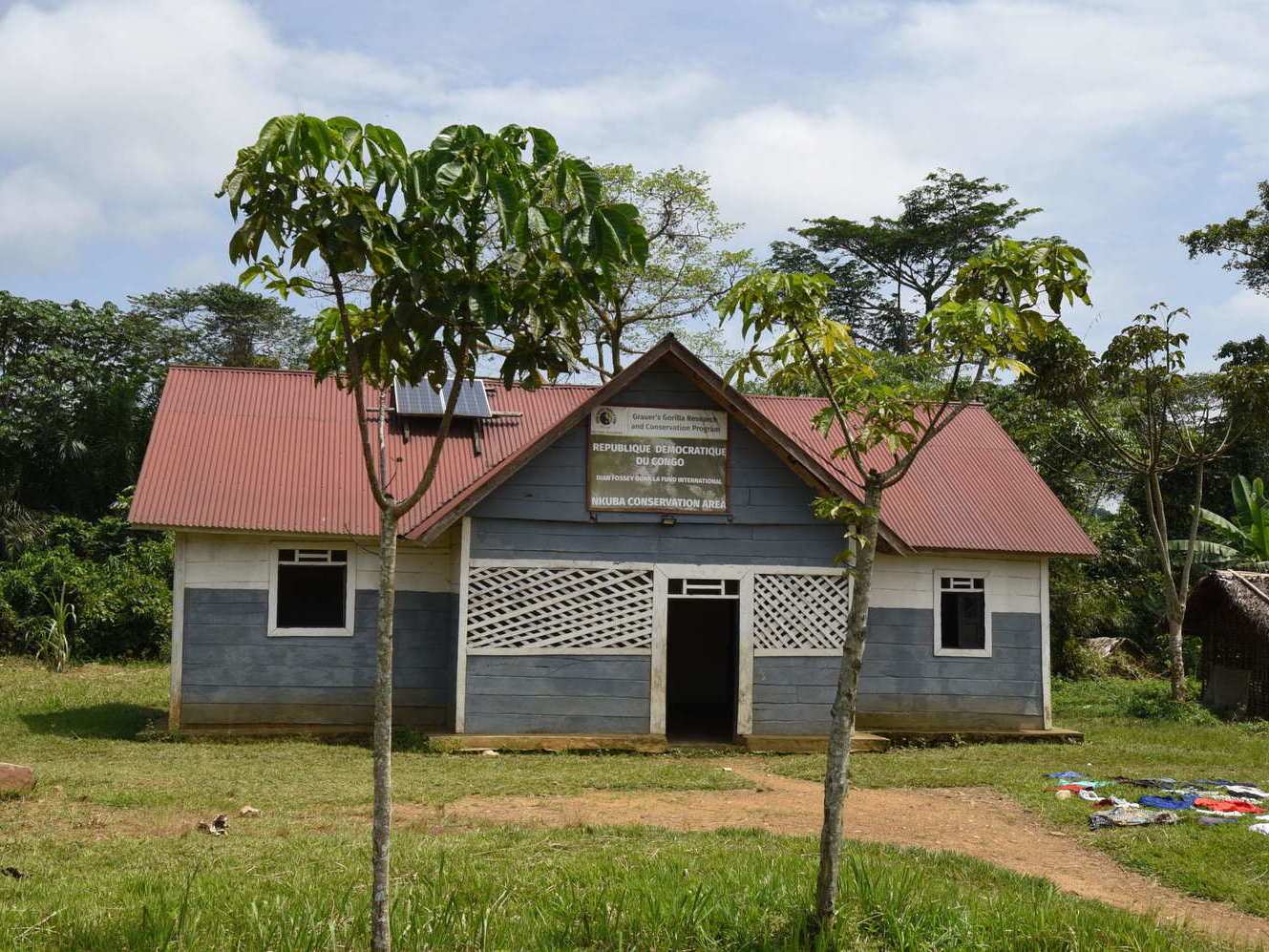We know that for conservation to be successful it must also address the needs of the human communities that share the gorillas’ forest home. That’s why our motto is “Helping People, Saving Gorillas.” Our community engagement programs focus on addressing needs like food and water security, education, and livelihood development, which can improve people’s lives and lessen their dependence on the forests where the gorillas live.
Recently, we were able to implement an agricultural project using mushrooms, which addressed all of our community engagement strategies at once: food security, livelihoods and education.
This project was supported by an IUCN Save Our Species protection grant, co-funded by the European Union. We used a portion of the grant to develop a mushroom-cultivation project with 40 families living adjacent to Volcanoes National Park in Rwanda, where we work to protect endangered mountain gorillas.

Nutritious and fast growing
Chances are you haven’t thought much about the mushrooms that appear on your store shelves and dinner plates. But with their high protein levels and ability to grow quickly, mushrooms are a healthy and relatively easy crop to cultivate. That makes them a good choice to help reduce the possibility of malnutrition among people who are at risk, and can offer a steady source of income to families who grow them.
In collaboration with Kigali Farms, a specialized mushroom-growing company based in Rwanda, we recently built 20 mushroom huts — special structures designed for farming the tasty fungus. We then worked with the local families to plant mushroom spores — the “seeds” from which new mushrooms sprout — in four of the huts, giving all of them hands-on training in the cultivation process.
Luckily, mushrooms grow fast — they are typically ready to eat within 10-14 days of planting — so within weeks, the first harvest was ready. The first four huts together produced 240 kilograms — about 530 pounds — of mushrooms. Of these, 143 kilograms were either consumed by the families or used in another training session, aimed at teaching the families different ways to cook their mushrooms.
Mushrooms also generate income
The remainder of the mushrooms — 97 kilograms, or 214 pounds — were sold at a local market. And now all the families are growing their own mushrooms.
We’ve now also added training on managing and maximizing the income generated from selling the excess mushrooms, including how to establish savings and loan accounts.
“I was not aware that mushroom farming can be a profitable business and contribute to improving health,” said Saveline Nyirankusi, one of mushroom project’s participants. “I will put a lot of effort into it and encourage my neighbors to grow mushrooms too.”

“Because mushrooms can be grown quickly and on a small scale, this project can generate significant income for participating families,” says Ildephonse Munyarugero, the Fossey Fund’s community development officer.
“The huts themselves will last three years or longer, making this an effective long-term food security program for the communities we serve. This project, in partnership with IUCN Save Our Species and Kigali Farms, really enables us to expand our mission of helping people and saving gorillas at the same time!”
This is all possible with the support of IUCN Save Our Species, co-funded by the European Union.
IUCN’s Save Our Species program aims to improve the long-term survival prospects of threatened species, which includes protecting the habitats of endangered species and working with communities who share these habitats. It achieves success by funding and coordinating conservation projects in multiple initiatives across the globe.








